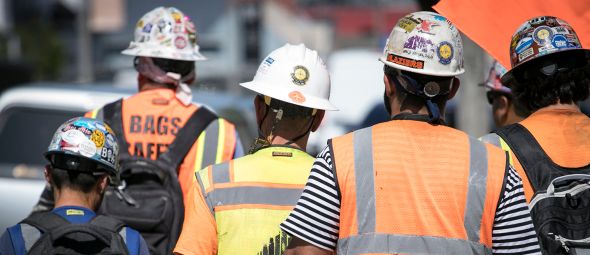Overview
Unions, collective bargaining, and other forms of advocacy have resulted in better wages, benefits, and working conditions for workers. Organized labor, however, is at a crossroads, as union membership has declined. As unions evolve to meet the needs of a globalized, 21st-century workforce, nonunion forms of worker organizing, sectoral bargaining, and worker representation on corporate boards have emerged as new forms of worker voice and representation.
Working Knowledge

A National Industrial Policy Could Strengthen a Manufacturing Resurgence Underway

Beyond Official Statistics Lies a More Complex Story of Worker Power

Codetermination: What Is It and How Might It Be Good for Workers?

California’s FAST Act Offers a Window on How Worker Standards Boards Could Improve Job Quality in the Fast Food Industry
Research
Worker Voice, Representation, and Power
In this brief, we provide a summary of the research framework that informs WorkRise’s thinking about the importance of worker voice and power for low-wage workers’ labor market mobility. We then offer a series of specific priority areas for future…
WorkRise Research
A Workplace Divided: Survey Research and Stakeholder Engagement to Advance Equitable Workplaces
Grantee Research

Nailing New Labor Models: Exploring Sectoral Bargaining and High-Road Training Partnerships in the Nail Salon Sector
Grantee Research
Worker Power and Economic Mobility: A Landscape Report
WorkRise Research
U.S. Workers’ Organizing Efforts and Collective Actions: A Review of the Current Landscape
Grantee Research